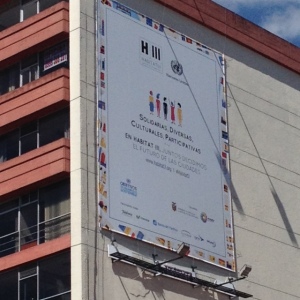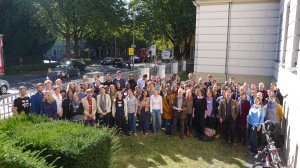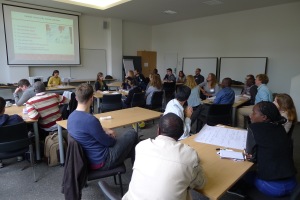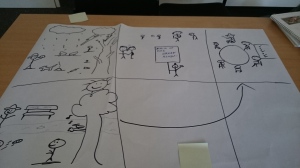With the support of the Royal Holloway Paula-Ann Travel Award, I spent one month in Kenya conducting field research for my dissertation titled “The study of the non-economic impact of technical ICT training on women – A case study of AkiraChix in Kenya”.
I came to Royal Holloway as a ICT for Development practitioner seeking to spend time researching things that I am passionate about. In my home country, Zambia, I co-founded and run Asikana Network, an organisation that seeks to empower women in the field of technology. We provide girls and women with free training in marketable ICT skills, a platform to interact and share knowledge, access to mentors and opportunities to give back to their own communities. Similarly, AkiraChix runs technical training programs for women from poor social and economic backgrounds in Nairobi, Kenya. Prior to coming to Royal Holloway, I had experimented with various informal learning techniques, some of which have shown evidence that technology can effectively be used as a tool to change the way women perceive themselves in a society with strong traditional gender norms.
The field work in Kenya allowed me not only explore the techniques used in an organisation with a similar mission to mine, but to assess the non-economic impact of the programmes run within a similar cultural context. It allowed me to better organise and crystalise ideas that I had before, but did not have the time to research further. It broadened my perspectives and opened me to incredible new ways of thinking. My time in Kenya was also vital for strengthening the bond between our women in technology initiatives, and we continue collaborating and learn from each other in the long term.
I successfully graduated with a distinction and was awarded the Alan Mountjoy Prize for the best dissertation in social and economic geographies of developing countries.
I have since returned to Zambia and am applying what was learnt throughout the MSc programme and during the field work. In the summer of 2017, I will be launching Young, Free and Connected, a 6-month programme in the heart of one of the lowest-income areas of Lusaka that will take young women through an intensive ICT training, placement and mentorship programme.
Chisenga Muyoya
MSc Practising Sustainable Development (ICT4D) graduate 2016













